Nancy Victor
A Comprehensive Analysis of Blockchain Applications for Securing Computer Vision Systems
Jul 13, 2023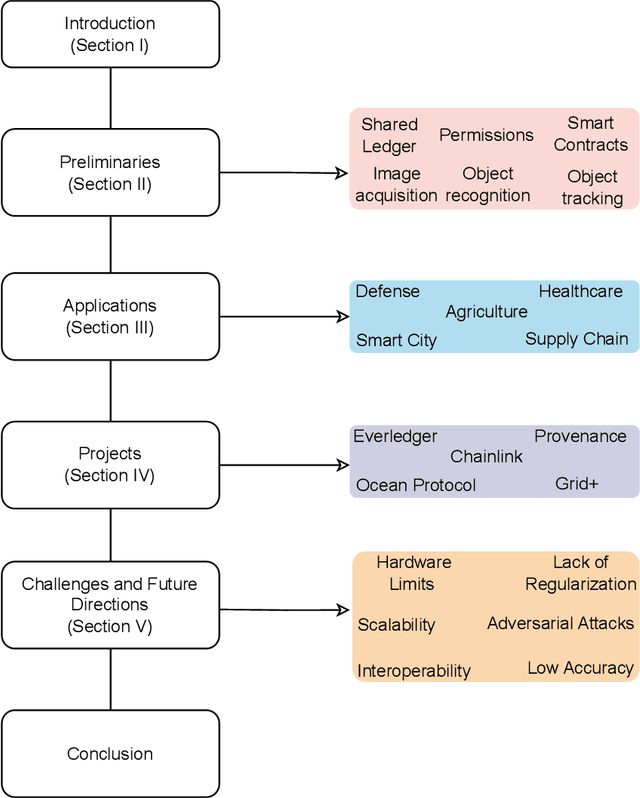
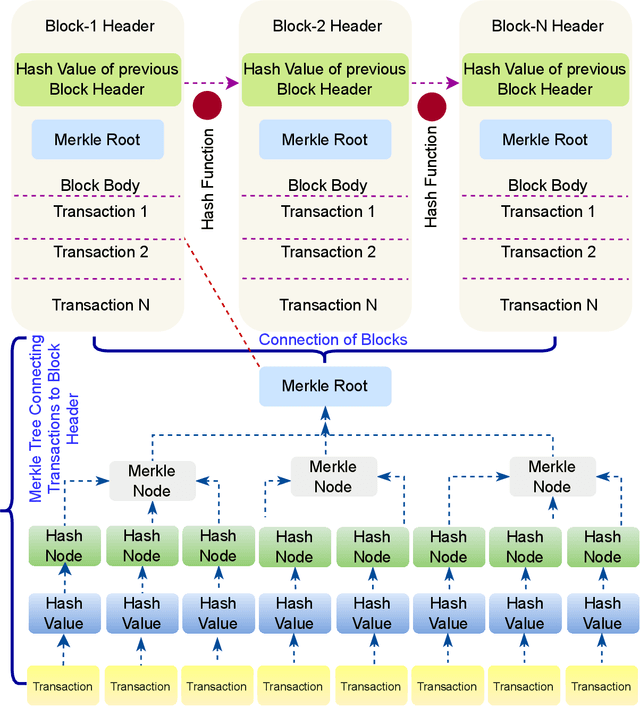
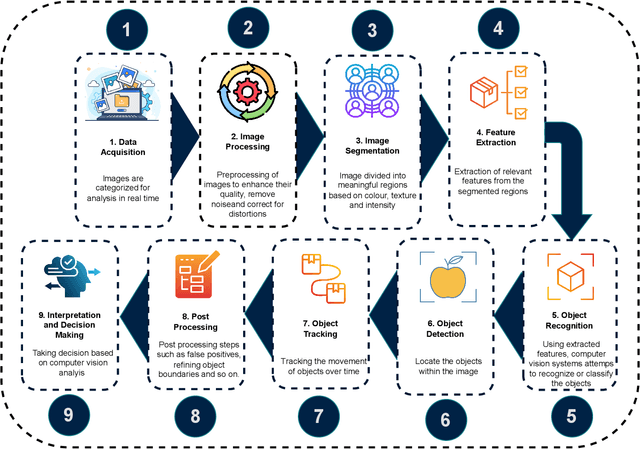
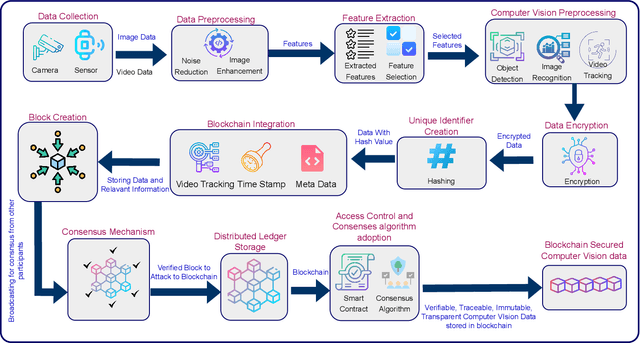
Abstract:Blockchain (BC) and Computer Vision (CV) are the two emerging fields with the potential to transform various sectors.The ability of BC can help in offering decentralized and secure data storage, while CV allows machines to learn and understand visual data. This integration of the two technologies holds massive promise for developing innovative applications that can provide solutions to the challenges in various sectors such as supply chain management, healthcare, smart cities, and defense. This review explores a comprehensive analysis of the integration of BC and CV by examining their combination and potential applications. It also provides a detailed analysis of the fundamental concepts of both technologies, highlighting their strengths and limitations. This paper also explores current research efforts that make use of the benefits offered by this combination. The effort includes how BC can be used as an added layer of security in CV systems and also ensure data integrity, enabling decentralized image and video analytics using BC. The challenges and open issues associated with this integration are also identified, and appropriate potential future directions are also proposed.
A Survey on Federated Learning for the Healthcare Metaverse: Concepts, Applications, Challenges, and Future Directions
Apr 05, 2023



Abstract:Recent technological advancements have considerately improved healthcare systems to provide various intelligent healthcare services and improve the quality of life. Federated learning (FL), a new branch of artificial intelligence (AI), opens opportunities to deal with privacy issues in healthcare systems and exploit data and computing resources available at distributed devices. Additionally, the Metaverse, through integrating emerging technologies, such as AI, cloud edge computing, Internet of Things (IoT), blockchain, and semantic communications, has transformed many vertical domains in general and the healthcare sector in particular. Obviously, FL shows many benefits and provides new opportunities for conventional and Metaverse healthcare, motivating us to provide a survey on the usage of FL for Metaverse healthcare systems. First, we present preliminaries to IoT-based healthcare systems, FL in conventional healthcare, and Metaverse healthcare. The benefits of FL in Metaverse healthcare are then discussed, from improved privacy and scalability, better interoperability, better data management, and extra security to automation and low-latency healthcare services. Subsequently, we discuss several applications pertaining to FL-enabled Metaverse healthcare, including medical diagnosis, patient monitoring, medical education, infectious disease, and drug discovery. Finally, we highlight significant challenges and potential solutions toward the realization of FL in Metaverse healthcare.
Metaverse for Healthcare: A Survey on Potential Applications, Challenges and Future Directions
Sep 09, 2022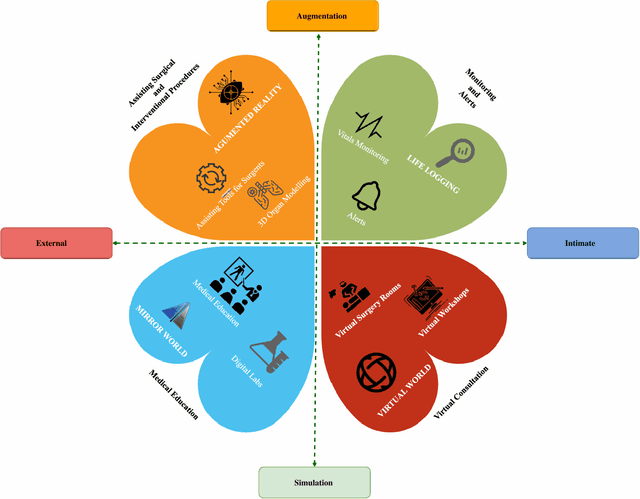

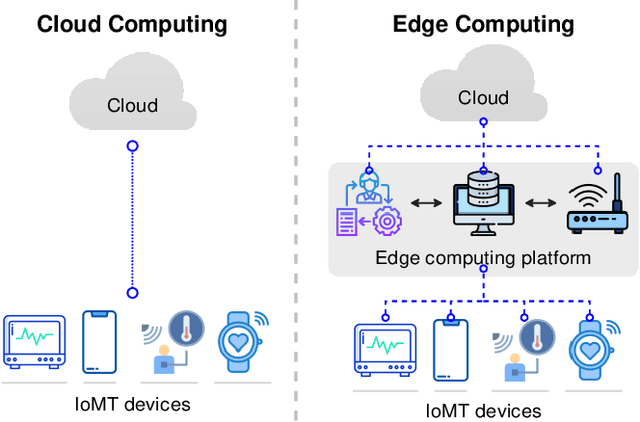
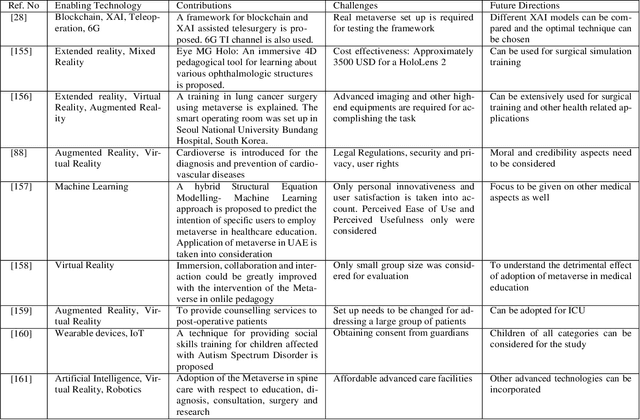
Abstract:The rapid progress in digitalization and automation have led to an accelerated growth in healthcare, generating novel models that are creating new channels for rendering treatment with reduced cost. The Metaverse is an emerging technology in the digital space which has huge potential in healthcare, enabling realistic experiences to the patients as well as the medical practitioners. The Metaverse is a confluence of multiple enabling technologies such as artificial intelligence, virtual reality, augmented reality, internet of medical devices, robotics, quantum computing, etc. through which new directions for providing quality healthcare treatment and services can be explored. The amalgamation of these technologies ensures immersive, intimate and personalized patient care. It also provides adaptive intelligent solutions that eliminates the barriers between healthcare providers and receivers. This article provides a comprehensive review of the Metaverse for healthcare, emphasizing on the state of the art, the enabling technologies for adopting the Metaverse for healthcare, the potential applications and the related projects. The issues in the adaptation of the Metaverse for healthcare applications are also identified and the plausible solutions are highlighted as part of future research directions.
Federated Learning for IoUT: Concepts, Applications, Challenges and Opportunities
Jul 28, 2022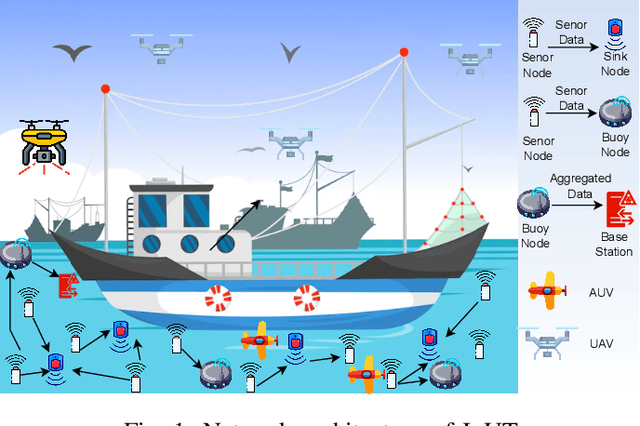
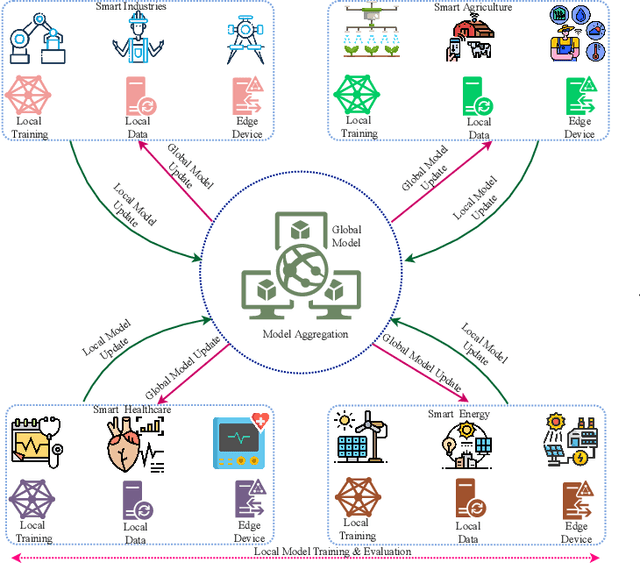
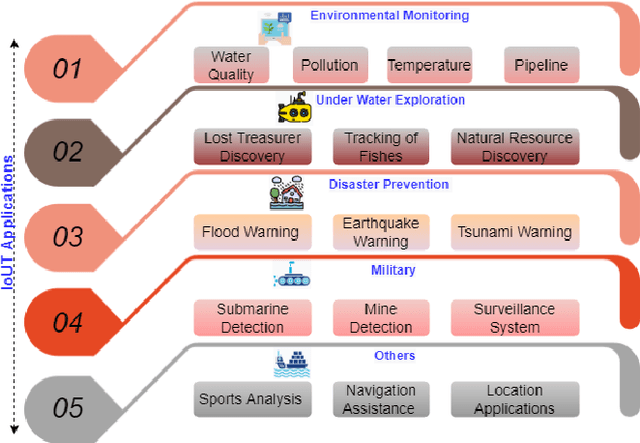

Abstract:Internet of Underwater Things (IoUT) have gained rapid momentum over the past decade with applications spanning from environmental monitoring and exploration, defence applications, etc. The traditional IoUT systems use machine learning (ML) approaches which cater the needs of reliability, efficiency and timeliness. However, an extensive review of the various studies conducted highlight the significance of data privacy and security in IoUT frameworks as a predominant factor in achieving desired outcomes in mission critical applications. Federated learning (FL) is a secured, decentralized framework which is a recent development in machine learning, that will help in fulfilling the challenges faced by conventional ML approaches in IoUT. This paper presents an overview of the various applications of FL in IoUT, its challenges, open issues and indicates direction of future research prospects.
 Add to Chrome
Add to Chrome Add to Firefox
Add to Firefox Add to Edge
Add to Edge